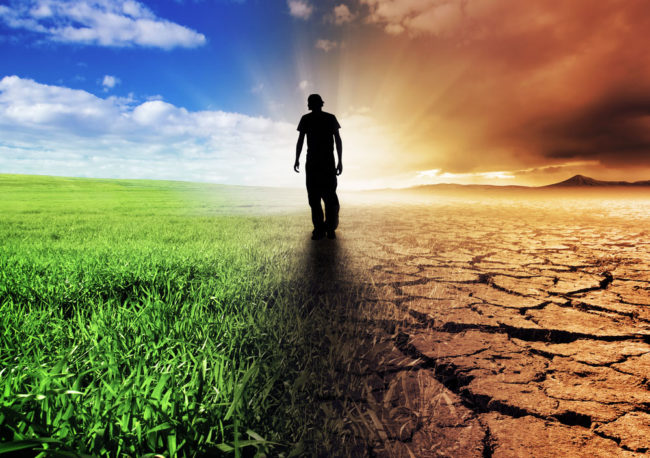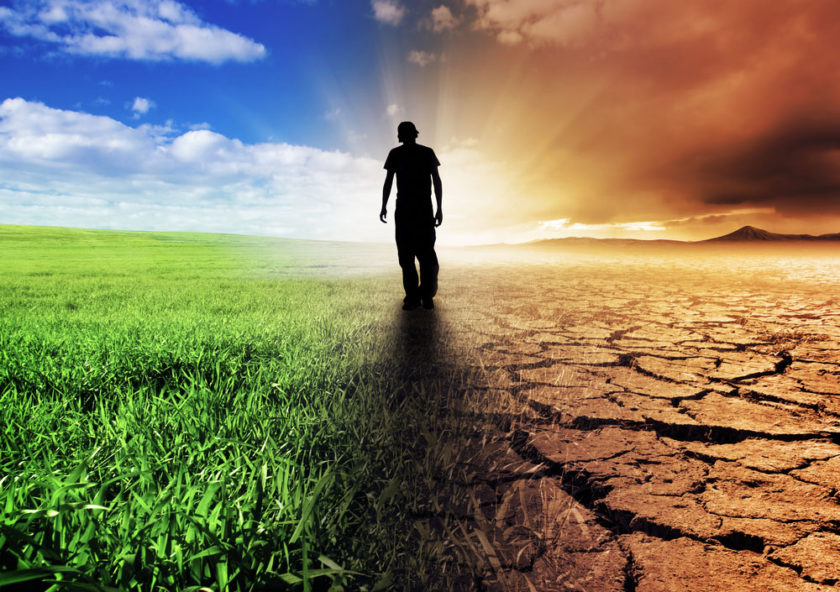
The old joke that is a Kipling parody goes as follows: “If you can remain calm when all about you are rushing about screaming in panic and alarm, then there is clearly something going on that you simply don’t understand“. The rather startling inverse of this is that many look upon the world with an understanding of what is happening and then despair when they observe that humanity remains mostly oblivious to what we are doing on a global scale. This is “Climate Grief”.
Do you have Climate Grief?
The loss of ecosystems and the demise of what was, induces not only activism, but also despair when no meaningful and necessary action takes place.
If you have such feelings then you are not alone. Greta Thunberg talks about falling into a deep depression when she began to understand the implications and realised that many in a position to do something had opted to do nothing …
“If burning fossil fuels was so bad that it threatened our very existence, how could we just continue like before?”
Extracts
Ellie’s insights
Ellie Mae O’Hagan writes in Vice last June as follows …
Climate grief is more like depression than bereavement. You do feel a sense of loss, because things are dying and you’re reminded of it everywhere, but you also have the madness that comes with mental illness. You are acutely aware that you see the world in this new and terrible way, and that it is intensely real, but that this awful truth isn’t reflected back at you in the world anywhere.
A friend of mine took his own life some years ago, and I remember going out for some air during the wake. In the park across the road, I saw a man jogging, and I thought about how utterly mind-blowing it was that this man could be jogging when such an enormous thing had just happened. Climate grief is like being the only person at the wake, while everyone else in the world is out jogging.
She concludes as follows …
how we react to climate change is still up for grabs. How bad it gets and the kind of world we build from it is our decision to make. We shouldn’t suppress climate grief, but expand it out and use it as a gateway to action. Hope is the axe you break down doors with in an emergency. But first you need to recognise that the house is on fire.
Robs Insights
Rob Law writes in the Guardian last May as follows …
Eco-psychologist Joanna Macy teaches useful frameworks for facing up to disturbing realities and finding capacity for action. First there is the gratitude stage, which focuses our attention on those aspects of life and the world that nourish us. Then there is a stage that honours the pain that we are experiencing. The third and fourth stages relate to exploring new possibilities and finding practical actions to take.
The second stage of “honouring the pain” is one that is often skipped over, as we naturally seek to protect ourselves from negative feelings. But making space for grief can help us confront the reality we face head on, and instead of just looking on the bright side, find a way to move forward.
It would seem that more of us are starting to acknowledge and accept our climate grief. By doing so we create new ways of connecting to one another, to mourn for what we all love and are losing day by day.
Having studied and worked on climate change professionally for over 15 years now, I have increasingly noticed this grief emerge within myself. ….
… to truly tackle the climate and extinction crisis we also need to give ourselves permission to grieve, personally and collectively. We can use grief to galvanise what is most important and bring forth new visions.
The American Psychological Association Report
In March 2017 the APA issued a report on the impact that Climate Change is having on our mental health. There they explain …
the psychological responses to climate change, such as conflict avoidance, fatalism, fear, helplessness, and resignation are growing. These responses are keeping us, and our nation, from properly addressing the core causes of and solutions for our changing climate, and from building and supporting psychological resiliency.
You can act and do something
The report explains that your lifestyle choices can curtail the mental health impacts incurred when our economies, physical and social infrastructures, and social identities are eroded by climate change.
Solutions they suggest include the following …
Physical commuting enhances a sense of well-being. Choosing to bike and/or walk (assuming it is safe and practical to do so) is one individual step that can help reduce the use of climate change–driving fossil fuels. Physical commuting also directly impacts depression, anxiety, PTSD, and other mental illnesses (California Department of Public Health, 2016). People who bike and walk to work, school, appointments, and other activities not only reduce emissions and improve their physical health but also experience lower stress levels than car commuters
Public transportation invigorates community mental health.
Moving people from individual cars to public transit also results in lower greenhouse gas emissions. In addition, several studies have shown that using public transportation leads to an increase in community cohesion, recreational activities, neighborhood walkability, and reduced symptoms of depression and stress associated with less driving and more exercise
Green spaces diminish stress. Parks and green corridors have been connected to improved air quality and can increase mental well-being. For example, trees sequester carbon, and green spaces absorb less heat than paved surfaces and buildings. More time spent interacting with nature has been shown to significantly lower stress levels and reduce stress- related illness.
Clean energy reduces health burdens.
Wind, solar, hydro, and other clean energy as well as energy efficiency are not only climate-friendly; they also reduce particulates and pollution in the air. Studies on air quality and children’s lung development have shown that as air pollution is reduced, children display significant lung function improvements
Final Thought
The Grief response is natural and perhaps to be expected. We are essentially emotionally driven, hence a realisation of the implications of climate change will also invoke deep passionate feelings.
Yes, there is much to lament, but hope still to some degree persists. In the generations to come some things are inevitable. Sea level will rise, we are committed to that. Costal cities will be lost. Nothing we can do can now change that outcome. Such knowledge brings grief. Yet our actions can still be meaningful. How we respond will greatly impact the speed at which things unfold. If we opt to remain oblivious then it will unfold rapidly, perhaps far faster than we can adapt. Still within our reach are choices. Meaningful choices have the potential to slow it all down such that it all unfolds at a far slower pace as the climate system finds a new balance. It can be a far longer timeframe of perhaps 10,000 years. There rests some hope because that gives us time to be able to respond.
When faced with it all should we simply quit and passively accept it?
Hell no, acceptance is off the agenda when choices that will make a real difference still remain an option.
Further Reading
- Vice (June 2019) – ‘Climate Grief’ Is Real and I’ve Got It Bad
- Guardian (May 2019) – I have felt hopelessness over climate change. Here is how we move past the immense grief
- American Psychological Association Report (2017) – MENTAL HEALTH AND OUR CHANGING CLIMATE: IMPACTS, IMPLICATIONS, AND GUIDANCE
